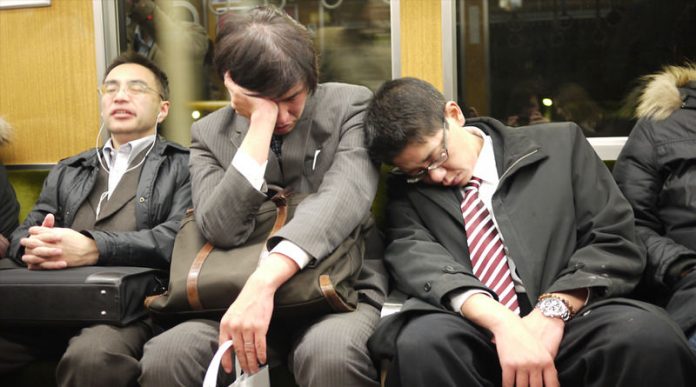Getting to know Japanese Culture #4:
Japanese Overwork and Why It Happens
![]()
This week on “Getting to know Japanese Culture,” I decided to tackle a more serious issue in Japanese Culture; Japanese overwork and why people might be working themselves to the death. First and foremost, I think it’s important to note some of the facts surrounding the issue; to paint the picture of how serious this really is in Japan’s current society.
Staff at 12% of Japanese corporations put in more than 100 hours of overtime every month. Expanding upon that, staff at 23% of Japanese corporations put in more than 80 hours of overtime every month. True figures may actually be worse than this; of the 10,000 companies the Japanese government invited to participate, only 1,743 actually did so.
In the 2015 fiscal year, the Ministry of Health, Labor and Welfare recognized 93 suicides and attempted suicides as having been caused by overwork. If we expand upon that to include all suicides white indicate problems related to work were to blame, the number jumps to 2,159. Comparatively speaking, the issue has gotten much worse over the years. 1,456 cases related to “Karoshi” were filed in the year leading up to April 2015; this is only 120 less than the amount of cases filed relating to karoshi between the years of 2004 and 2008.
“Karoshi (過労死),” for those who don’t know, can be translated literally to “overwork death,” and is the Japanese term for those who die or commit suicide do to overwork.
Hiroshi Kawahito, president of the Tokyo-based Kawahito Law Office and head of the National Defense Counsel for Victims of Karoshi, has much to say on the issue.
“We can see many reasons why the problem is becoming more acute, but the single largest reason is the excessive sense of competition in society here━In the years since Japan’s economic bubble burst, in the early 1990s, the nation’s economy has been stagnant and companies have had to reduce their costs━For many, the easiest way to do this is by cutting their numbers of full-time, salaried employees and replacing them with workers on temporary contracts.”

As a result of this, salaried workers are put under the pressure of working both harder and more hours just to safeguard their positions. In recent decades, unpaid overtime as well as shorter holidays have sadly become the norm. The Japanese government is, at the very least, beginning to recognize that there is actually a problem. In 2015, the government investigated more than 2,362 complaints, and issued warnings or punishments in 60% of those cases.
Unfortunately, with less younger people entering the workplace, companies will continue to cut costs, inevitably furthering the increase in karoshi cases. There is some hope, though, as the issue has recently been brought back to the forefront of discussion with the death of Miwa Sado; a 31-year-old journalist who was working at NHK. Apparently, she had logged more than 159 hours of overtime with only two days off in the month leading up to her death.
One of the main reasons progress in remedying this is so slow, is the fact that it takes the Japanese government so long to investigate these cases. Sado’s death happened way back in July 2013, but only just last week resurfaced, as the government finally pronounced it as karoshi.
With Japanese overwork back in the public light, pressure on Japanese authorities to address the large number of deaths attributed to the punishingly long hours expected of many employees, is expected to increase.
![]()
Read Getting to know Japanese Culture #3: Unique Japanese Words here.
Source: The Guardian, SCMP






